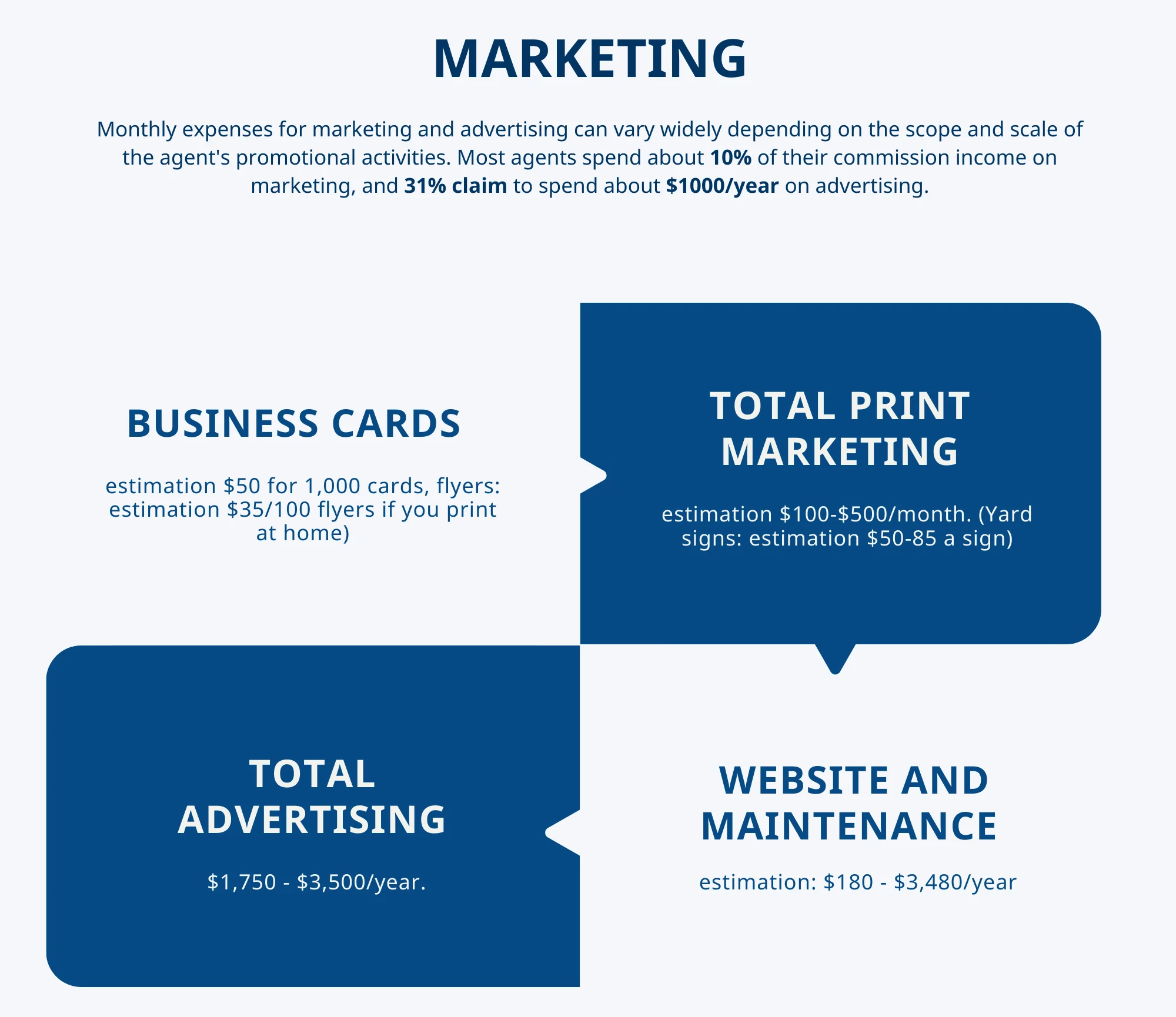When you sell your home, one of the largest questions on your mind will be how much money your real estate agent makes from the transaction. Most real estate agents make their living from commissions, which are a percentage of the selling price of the home.
In the past, this commission used to be around 5% to 6%, usually split by the seller. This arrangement has been modified with the advent of new real estate commission rules in late 2024.
In this article, we will break down how much real estate agents make, how the commission structure has evolved, and what factors influence an agent’s earnings.
How Real Estate Agents Are Paid
Real estate agents mainly make their living in the form of commissions, which are tied to a percentage of the selling price of a home. In the past, when a home was sold, the seller paid the commission, typically split between the listing agent and the buyer’s agent. Then, some portion of the commission would go to their respective brokerages.
However, on August 17, 2024, a landmark lawsuit settlement by the National Association of Realtors (NAR) changed how real estate commissions are structured. This ruling “decoupled” the compensation for buyer and seller agents, meaning sellers are no longer obligated to cover the buyer’s agent’s commission. Instead, buyers must negotiate the fees directly with their agent.
Although commissions remain the main form of compensation for real estate agents, the dynamics of who pays and how fees are divided are evolving. Agents will sometimes charge a flat fee or work on a salary, though this is usually found in discount brokerages or niche real estate companies. However, the commission structure is still most prevalent since it makes the agent’s earnings contingent on his or her effort and the closing price of the property.
According to recent salary data from the NAR, here is a breakdown of how much real estate agents make per sale:
- Overall median gross income: $56,400
- Agents with 16+ years of experience: More than $100,000
- Agents with 2 years or less of experience: Less than $10,000
Understanding Commission Structures
Before the NAR settlement, the average real estate commission was around 5.8% of a home’s sale price. This fee was paid by the seller and split 50/50 between the listing and buyer’s agents. Each agent would then share a portion of their earnings with their brokerage.
With the new NAR model in place, there is not enough data yet to determine an exact new average commission rate. However, early reports indicate that sellers and buyers each pay their own agents around 2.8%-3% of the sale price. Some sellers may still offer to cover the buyer’s agent fees as an incentive in slower markets.
Factors Affecting an Agent’s Income
Several factors influence how much a real estate agent earns, including location, experience, sales volume, brokerage fees, and business expenses.
Location & Market Conditions
An agent’s income is largely dependent on their local housing market. In areas with high property values and strong demand, agents can earn more on each transaction. Conversely, in slower markets, agents may struggle with fewer sales opportunities and lower commissions.
Experience Level
More senior agents usually earn higher commissions and make more deals. They also possess greater networks, improved marketing, and more advanced negotiation, which results in more revenue.
Sales Volume & Transaction Frequency
Agents who manage several deals per month can greatly enhance their earnings. Top-producing agents tend to earn six figures or higher, whereas those who only experience sporadic sales struggle to earn a predictable income.
Brokerage Fees & Splits
Agents must share their commissions with their brokerages. The split percentage depends on the agent’s experience and agreement with the brokerage. Some agents may retain a higher percentage of their commission in exchange for taking on more business costs themselves, while others accept lower commission splits in exchange for greater brokerage support and resources.
Real Estate Agent Expenses
Being a real estate agent involves several business-related costs, including:
Marketing & Advertising
Agents invest in marketing their listings and services via websites, social media advertisements, print items, and open houses. Marketing costs vary between a few hundred to a few thousand dollars each month based on the agent’s plan and area of target market.
Licensing & Continuing Education
Real estate agents have to remain informed about the industry trends and requirements of the law through continuing education classes and their license maintenance.
MLS & Membership Fees
Agents have to pay a fee to use the Multiple Listing Service (MLS), which contains important property information and listings. As of 2024, agents no longer make offers of compensation to buyer’s agents available on the MLS because of the NAR settlement.
Operational Expenses
Operating a real estate company entails costs like office rental, travel, technology (smartphones, tablets, software), and administrative expenses.
Equating these costs to commission revenues is essential for agents to ensure profitability.
Conclusion
Real estate agents earn mainly from commission, although the commission structure has changed with recent trends in the industry. Although the long-standing 5%-6% commission is diminishing, agents still have an essential role in selling and buying homes. Understanding how agent commissions work can help you make informed decisions and budget accordingly for your real estate journey.
